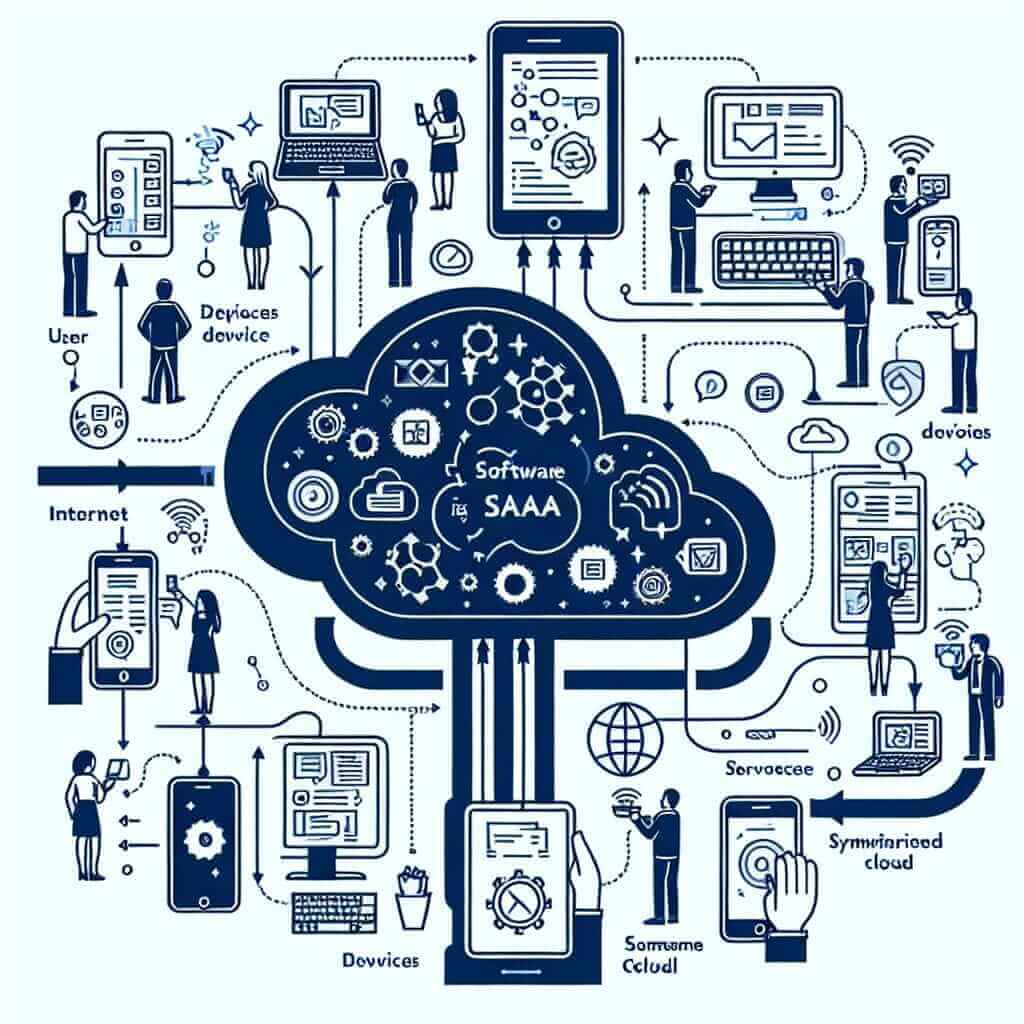The term “Software as a Service” (SaaS) is becoming increasingly prevalent in today’s technology-driven world. It’s not just a buzzword; it’s a concept that frequently pops up in IELTS readings, listening sections, and can even be used in your speaking and writing responses to showcase a modern, tech-savvy vocabulary.
Understanding SaaS and its Synonyms
Before we dive into its IELTS applications, let’s clarify what “Software as a Service” means.
SaaS /sæs/ (noun): This refers to a software distribution model where a third-party provider hosts applications and makes them available to users over the internet. Think of popular services like email platforms, online office suites, or customer relationship management (CRM) tools – these are often delivered as SaaS.
Here are some synonyms and related terms to broaden your vocabulary:
- Cloud computing: (noun) A general term for delivering hosted services over the internet.
- On-demand software: (noun) Software that is accessed and used as needed, without the need for installation.
- Subscription-based software: (noun) Software that users pay for on a regular basis, typically monthly or annually, to access and use.
Example Sentence: “Many businesses are switching from traditional, on-premise software to SaaS solutions to reduce IT costs and increase flexibility.”
SaaS in the IELTS Exam
The relevance of SaaS to the IELTS exam is significant, especially as technology plays an ever-growing role in various professional and social contexts.
- Listening: You might encounter SaaS in lectures about technology trends, business case studies, or discussions about remote work and digital transformation.
- Reading: Passages on cloud computing, the software industry, or modern business models are likely to feature SaaS.
- Speaking: You could use SaaS as an example when discussing technology’s impact on work, education, or everyday life.
- Writing: In Task 2, you might need to evaluate the advantages and disadvantages of SaaS or compare it to traditional software models.

Applying SaaS Vocabulary
Let’s examine how to effectively use SaaS-related vocabulary in your IELTS responses:
IELTS Speaking Part 3 Example:
Examiner: “Do you think technology has made it easier for people to start their own businesses?”
Candidate: “Absolutely! With the rise of cloud computing and SaaS, entrepreneurs have access to affordable and powerful tools that were previously only available to large corporations. For example, they can easily manage their finances using online accounting software or reach a global audience through social media marketing platforms, most of which operate on a subscription-based model.”
IELTS Writing Task 2 Example:
Prompt: “Discuss the advantages and disadvantages of businesses adopting Software as a Service (SaaS) solutions.”
Extract from Sample Answer: “One compelling advantage of SaaS lies in its cost-effectiveness. Businesses can avoid significant upfront investments in hardware and software licenses, opting instead for predictable monthly or annual subscription fees. This accessibility lowers the barrier to entry for startups and small businesses, allowing them to compete more effectively…”
Expanding Your Vocabulary: Idioms and Collocations
- To be in the cloud: To store or access data and applications over the internet rather than on a local device.
- Cutting-edge technology: Refers to the most advanced or innovative technology available.
- Digital transformation: The process of using technology to fundamentally change how a business operates and delivers value to customers.
By incorporating “Software as a Service” and related vocabulary into your IELTS preparation, you’ll demonstrate a strong grasp of current technological trends and enhance your ability to communicate effectively on a variety of topics.